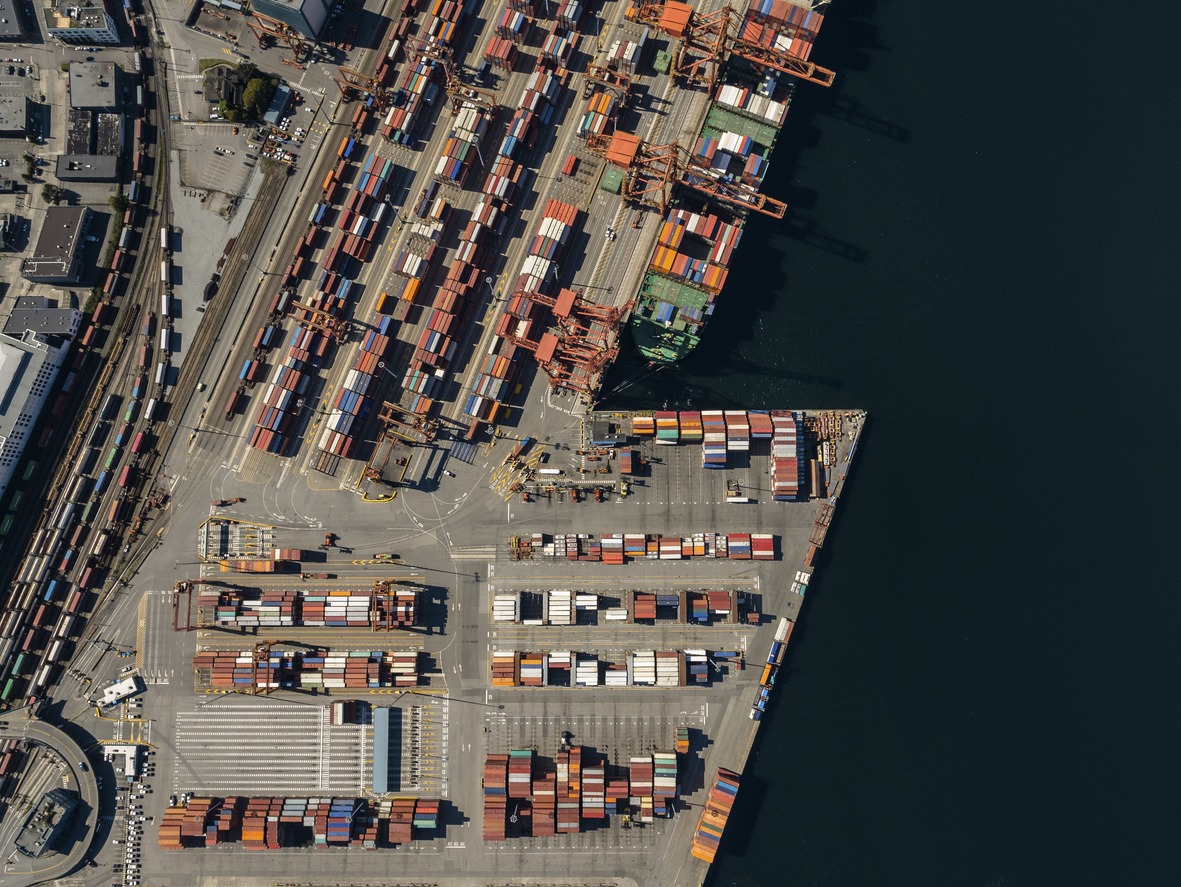
Questions about container transportation? Our professional team is here to help.
What Is Container Transportation and Why Does It Matter?
Container transportation is the backbone of global trade, allowing businesses to move goods efficiently across vast distances. From manufactured products to raw materials, container shipping supports supply chains worldwide. But how does it work, and what should shippers consider when sending cargo to Vancouver or other Canadian ports?
Freight shipments require careful planning and logistics coordination to ensure efficiency and cost-effectiveness. Selecting the right freight services, optimizing carrier options, and understanding pricing structures are essential steps in managing successful container transportation. Additionally, freight forwarders play a critical role in simplifying logistics and securing the best rates for businesses looking to transport goods across the world.
This guide breaks down everything you need to know about container transportation, from history and regulations to the modern marketplace and best practices.
A Brief History of Container Transportation
Container shipping as we know it began in 1956 when Malcolm McLean introduced standardized shipping containers. This innovation revolutionized freight transport by improving efficiency, reducing handling time, and minimizing damage. Today, containerization accounts for the majority of overseas cargo shipping, with ports like Vancouver serving as critical hubs in international trade.
Over time, the integration of Itl freight solutions has streamlined global shipping services, improving coordination between carriers and enhancing supply chain efficiency. With the rise of e-commerce and global supply chains, freight forwarders have become indispensable in ensuring timely and cost-effective shipping freight solutions.
How Does Container Transportation Work?
Container transportation involves multiple stages:
- Booking & Packaging: Shippers select the right container size and type, ensuring goods are packed securely.
- Loading & Port Handling: Containers are transported to ports where they undergo customs clearance and loading onto vessels.
- Sea Freight & Transit: Containers travel via cargo shipping routes to their destination port.
- Unloading & Inland Transport: Upon arrival, containers clear customs and are moved to their final destination via rail or truck.
For businesses utilizing freight services, working with a reliable carrier is crucial to ensuring timely and cost-effective shipping services. Freight forwarders can assist in securing the best rates and streamlining the process to reduce delays.
What Types of Containers Are Available?
Choosing the right container is crucial for efficient cargo shipping. Common options include:
- Standard Dry Containers (20ft, 40ft): Ideal for general goods.
- Refrigerated Containers (Reefers): Used for perishable items.
- Open-Top & Flat-Rack Containers: Designed for oversized cargo.
- Tank Containers: Suitable for transporting liquids and gases.
The right container choice impacts the pricing and efficiency of freight shipments, particularly when coordinating services for long-distance supply chain operations.
Key Considerations for Container Shipping to Vancouver
How Do You Choose the Right Container for Your Shipment?
Consider the following when selecting a container:
- Size & Weight: Ensure your cargo fits within standard container dimensions.
- Fragility & Sensitivity: Opt for refrigerated or ventilated containers if necessary.
- Cost Efficiency: Full Container Load (FCL) is cost-effective for large shipments, while Less than Container Load (LCL) is better for smaller cargo.
Read our Ultimate Guide to Vancouver Logistics, Ports, Freight & 3PL!
What Are the Costs of Container Transportation?
Costs depend on:
- Distance & Route: Longer distances and congested routes increase shipping costs.
- Container Type & Size: Specialized containers cost more.
- Customs & Port Fees: Vary by location and cargo type.
For shipments to Vancouver, Canada freight shipping companies must factor in port handling fees, import duties, and regulatory compliance. Additionally, working with ITL freight providers can optimize pricing and enhance overall supply chain logistics. Freight forwarders can assist businesses in securing the best rates for international deliveries and pickups.
How Do Regulations Affect Container Shipping to Canada?
When shipping to Canada, compliance with the Canada Border Services Agency (CBSA) and Transport Canada regulations is essential.
- Import Documentation: Bill of Lading, Customs Declaration, and Cargo Manifest are required.
- Safety Standards: Ensure compliance with container weight and hazardous materials guidelines.
- Environmental Regulations: Canada enforces strict environmental laws for cargo shipping emissions.
Failure to meet regulatory requirements can lead to delays, penalties, and increased shipping services costs. Freight forwarders specializing in ITL freight can help businesses navigate regulatory challenges and ensure smooth shipping freight operations.
How to Optimize Container Transportation for Efficiency
What Are the Best Practices for Reducing Freight Costs?
- Plan in Advance: Last-minute bookings often cost more.
- Leverage Intermodal Transport: Using rail and truck transport strategically can save money.
- Work With Reliable Freight Partners: Canada freight shipping companies like Canadian Alliance Terminals ensure smooth logistics.
- Utilize Freight Forwarders: Experts can help businesses secure the best rates and optimize supply chain operations.
Choosing an experienced carrier and optimizing freight services can significantly impact pricing and efficiency.
How Can Businesses Improve Cargo Security?
- Use Sealed & Tamper-Proof Containers to prevent theft.
- Track Shipments in Real Time using GPS and RFID.
- Partner With Trusted Freight Companies that follow strict security measures.
By integrating ITL freight solutions, businesses can improve shipment tracking and optimize their shipping services for greater security and efficiency.
The Future of Container Transportation in Canada
Container transportation continues to evolve with trends such as:
- Automation & AI: Smart logistics and automated ports reduce delays.
- Sustainability Initiatives: Lowering emissions and using eco-friendly fuels.
- Digital Documentation: Blockchain and e-Bills of Lading improve efficiency.
With Vancouver as a key shipping hub, companies investing in modern freight transport solutions will stay ahead in an increasingly competitive marketplace. Businesses that integrate efficient freight services into their supply chain operations will benefit from reduced costs and improved carrier reliability. Freight forwarders will continue to play a vital role in providing businesses with the best rates and seamless pickups and deliveries worldwide.
How Can Canadian Alliance Terminals Help With Your Shipping Needs?
Navigating the complexities of container transportation requires expertise. Canadian Alliance Terminals provides end-to-end solutions, including logistics coordination, warehousing, and regulatory compliance support.
Contact us today to streamline your shipping operations and ensure your cargo reaches its destination efficiently.
